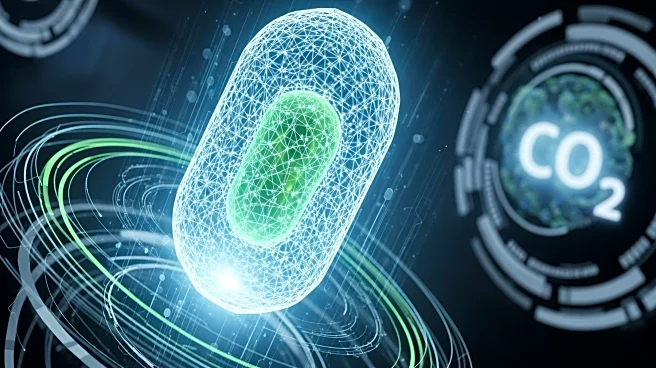What's Happening?
Researchers at the Korea Institute of Energy Research have developed a copper-based catalyst that efficiently converts carbon dioxide into carbon monoxide at lower temperatures. This breakthrough in the reverse
water-gas shift reaction allows for the production of syngas, a key component in synthetic fuels, at just 400°C. The new catalyst outperforms traditional nickel-based catalysts, offering higher yield and stability without forming unwanted byproducts like methane. This advancement could significantly enhance sustainable fuel production and contribute to carbon neutrality.
Why It's Important?
The development of this catalyst represents a major step forward in sustainable energy production, offering a cost-effective method to recycle CO2 into usable fuel components. It addresses the challenge of operating at lower temperatures, reducing energy consumption and improving efficiency. This technology has the potential to transform industries reliant on synthetic fuels, such as aviation and shipping, by providing a cleaner alternative to fossil fuels. It also supports global efforts to reduce greenhouse gas emissions and combat climate change.
What's Next?
The research team plans to expand the application of this catalyst to industrial settings, aiming to commercialize sustainable synthetic fuel production technologies. Continued research will focus on optimizing the catalyst's performance and exploring its use in various sectors. The findings could lead to new partnerships and investments in green technology, driving further innovation in the field.
Beyond the Headlines
This catalyst development highlights the importance of scientific innovation in addressing environmental challenges. It underscores the role of research institutions in advancing sustainable technologies and the potential for international collaboration in achieving carbon neutrality. The breakthrough also raises questions about the scalability and economic viability of such technologies in real-world applications.









